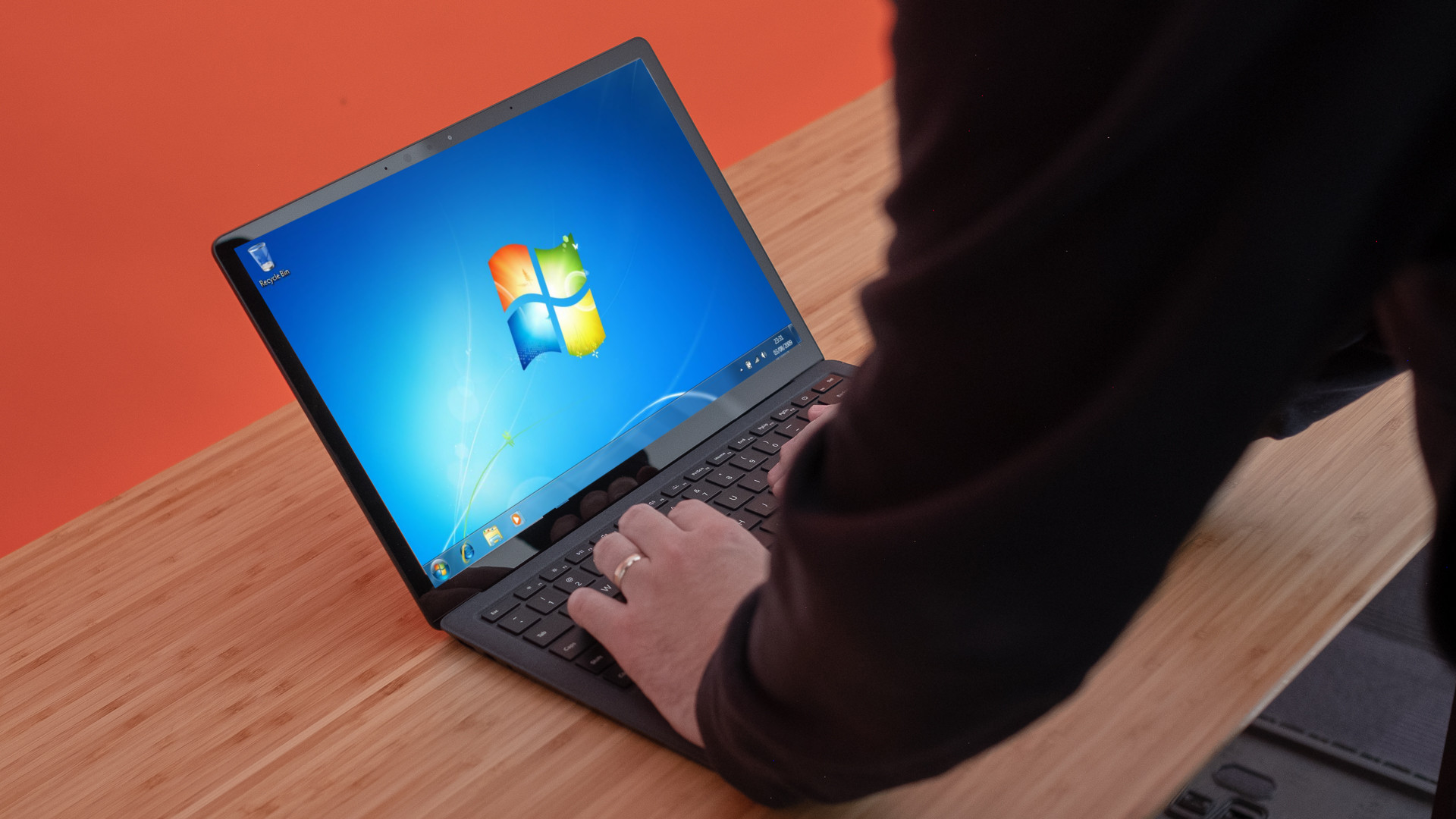UK’s intelligence agency lays down the law on why you shouldn’t be using Windows 7 after January 14
Slightly oddly phrased warning from GCHQ counsels against online banking and emails

Windows 7 end-of-life rolls around on January 14, and ahead of Microsoft’s cessation of support tomorrow, the UK’s National Cyber Security Centre – part of GCHQ – has advised that folks should not be using the old OS for online banking, or indeed emails.
According to The Telegraph, a spokesperson for the NCSC commented: “The NCSC would encourage people to upgrade devices currently running Windows 7, allowing them to continue receiving software updates which help protect their devices."
- It's time to move on - but how good is Windows 10 really?
- Intel releases free file transfer app to help you ditch Windows 7
- Microsoft may extend Windows 7 end of life for some users
It continues, “We would urge those using the software after the deadline to replace unsupported devices as soon as possible, to move sensitive data to a supported device and not to use them for tasks like accessing bank and other sensitive accounts.”
The spokesperson further added: “They should also consider accessing email from a different device.”
Certainly you should not be doing anything sensitive such as online banking from an out-of-support machine, but really you shouldn’t be doing anything at all online, so it seems slightly strange that the NCSC highlights emailing as a particular area of danger.
Probably it has done so due to the likelihood of being compromised via an email attachment or link, which is understandable – but in some ways picking out banking and emailing as the real sticking points could be read by some less tech-savvy users as an ‘okay’ to continue with Windows 7 if you’re doing anything else (possibly with a side justification of “well I don’t really do much emailing anyway, and keeping in touch with mum and dad doesn’t count”).
Running risks
Whereas the reality is if you’re using Windows 7 from January 14, and you’re online at all, you are running the risk of being compromised by all manner of different kinds of potential vulnerabilities that may pop up in the OS.
Get daily insight, inspiration and deals in your inbox
Sign up for breaking news, reviews, opinion, top tech deals, and more.
That’s because Microsoft is no longer providing security patches or updates for Windows 7, so any vulnerabilities will remain accessible to hackers, who can leverage them to all sorts of nefarious ends.
Theoretically, if there is a big enough incident – like WannaCry – Microsoft could provide a one-off patch for Windows 7, but this isn’t the sort of thing you should count on (and at any rate, it will be delivered after the event, and quite possibly too late to help you).
Those running Windows 7 should look to upgrade to Windows 10 as soon as possible, or failing that, will need to explore alternative operating systems such as Linux.
Windows 7 is well over a decade old now, and something like 440 million folks around the globe are still using the venerable OS. The most recent statistics from the big analytics firms show that Windows 7 remains on around 27% of PCs across the globe (albeit a sizeable number of these will doubtless be business machines, where upgrading the operating system across numerous computers is a thornier proposition).
Darren is a freelancer writing news and features for TechRadar (and occasionally T3) across a broad range of computing topics including CPUs, GPUs, various other hardware, VPNs, antivirus and more. He has written about tech for the best part of three decades, and writes books in his spare time (his debut novel - 'I Know What You Did Last Supper' - was published by Hachette UK in 2013).